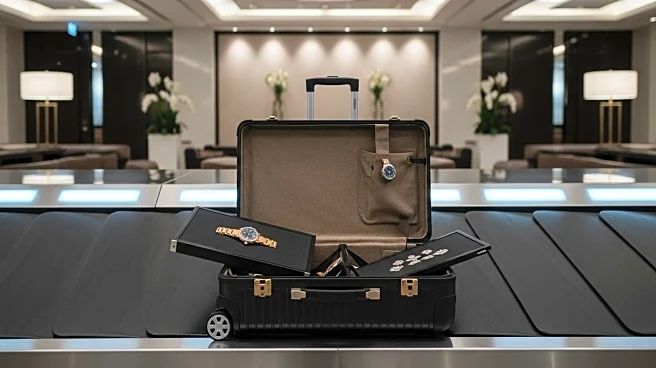What's Happening?
The rise in US tariffs under President Trump's trade policies has created incentives for wealthy Americans to engage in smuggling luxury goods from abroad. High tariffs on items such as Swiss watches and French handbags have led affluent travelers to seek ways to avoid paying duties. This trend is reminiscent of past eras when high tariffs prompted similar behavior among wealthy individuals.
Why It's Important?
The increase in smuggling activities highlights the impact of trade policies on consumer behavior. As tariffs rise, the risk-reward calculus for smuggling becomes more favorable, potentially leading to increased illegal activities. This situation poses challenges for customs enforcement and raises questions about the effectiveness of current trade policies. The luxury market may experience shifts as consumers seek ways to circumvent tariffs.
Beyond the Headlines
The phenomenon of smuggling luxury goods reflects broader issues related to trade policies and consumer behavior. It raises ethical questions about the legality and morality of avoiding tariffs. The historical context of smuggling during periods of high tariffs provides insights into the recurring nature of this behavior. The focus on luxury goods underscores the intersection of wealth, consumerism, and trade regulations.









